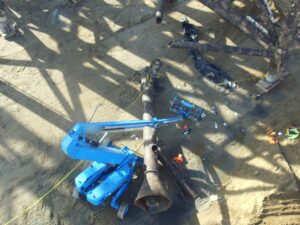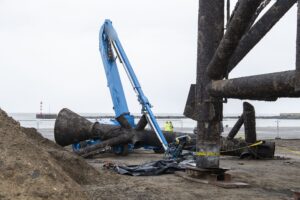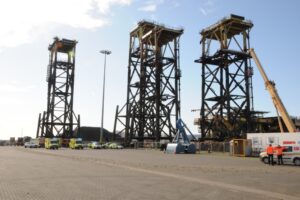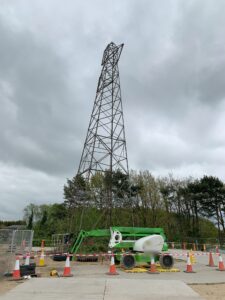Recycling company director sentenced after worker loses leg
The director of a Halifax-based recycling company has been given a community order after a worker lost part of his left leg when it was crushed by machinery.
Daisy Ning Bai, 43, the director of BW Recycling Limited, was told she must complete 160 hours of unpaid work after pleading guilty to health and safety breaches. They related to an incident on 26 November 2019 at the company’s Cinderhall Works site on Sidall Top Lane.
The incident saw Nathan Bland, who was just 20 years of age at the time, have the lower part of his left leg instantly amputated. He also lost several toes from his right foot after his legs were crushed inside a waste baler – a piece of equipment used to compress waste products into a form that’s easy to manage for recycling or disposal.
In a victim personal statement, Mr Bland, who is now 25, said ‘every day was a struggle’ and that returning to work had proved to be very difficult due to the prosthetic leg he now has to wear.
“I can still have flashbacks,” he said.
“I also struggle as my stump has issues fitting on my prosthetic leg.
“The incident has also affected my social life as it has given me PTSD and depression.
“I have had to get a support worker to help with my daily activities to help me with daily activities such as shopping and going to appointments.”

An investigation by the Health and Safety Executive (HSE) found that Daisy Ning Bai, introduced a working platform in front of the baler to make the job of filling the hopper easier for the operatives. The introduction of the platform in front of the hopper permitted easy access to the baling chamber including access to the dangerous moving parts of the baler itself.
Daisy Ning Bai, director of BW Recycling Limited of Ridge View Drive, Huddersfield, West Yorkshire pleaded guilty to breaching Section 37(1) of the Health & Safety at Work etc Act 1974. She was given a 12-month community order and must complete 160 hours of unpaid work. She was also ordered to pay £5,843 in costs.
- BW Recycling Limited was not prosecuted by HSE after it was dissolved via compulsory strike off on 5 December 2023.
After the hearing, HSE inspector Sarah Lee commented: “A young man has had his life changed forever as a result of this incident.
“Companies and individuals that use balers should not install working platforms or other devices in front of the hoppers on balers as it permits access to dangerous moving parts of the baler.
“This incident could so easily have been avoided by simply carrying out correct control measures and safe working practices”
Notes to editors:
- The Health and Safety Executive (HSE) is Britain’s national regulator for workplace health and safety. We are dedicated to protecting people and places, and helping everyone lead safer and healthier lives.
- More information about the legislation referred to in this case is available.
- Further details on the latest HSE news releases is available.
- HSE does not pass sentences, set guidelines or collect any fines imposed. Relevant sentencing guidelines must be followed unless the court is satisfied that it would be contrary to the interests of justice to do so. The sentencing guidelines for health and safety offences can be found here.



